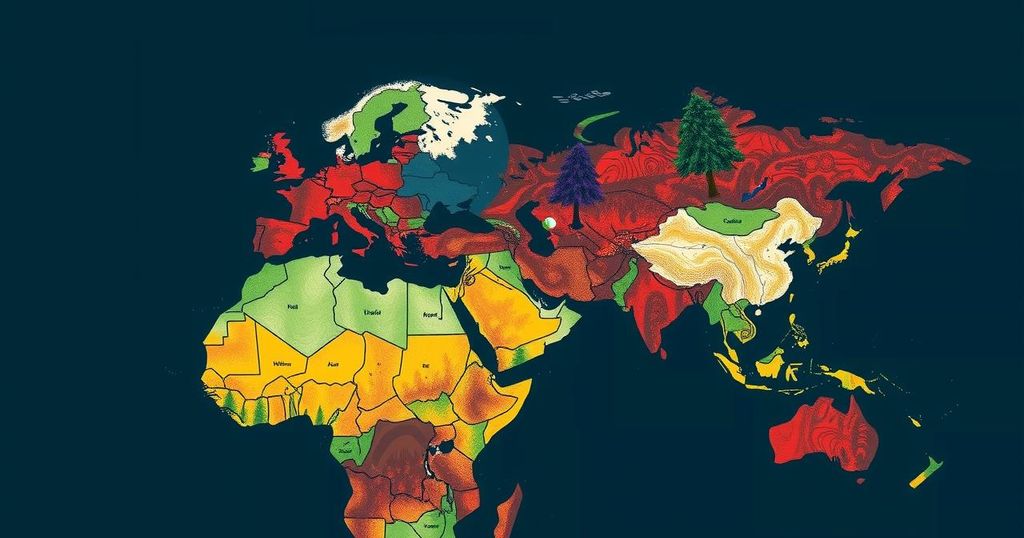Climate change
AFRICA, ARIF GOHEER, ASIA, AZERBAIJAN, BAKU, CLIMATE CHANGE, CLIMATE JUSTICE, DONALD TRUMP, ENVIRONMENTAL POLICY, GLOBAL NORTH, GLOBAL SOUTH, GULF STATES, INTERNATIONAL COOPERATION, ISLAMABAD, NORTH, PAKISTAN, PARIS AGREEMENT, SHE, SHEHBAZ SHARIF, SIERRA LEONE, TRUMP, US
Marcus Li
0 Comments
Challenges at COP29: The Urgent Need for Climate Finance Commitment
The COP29 climate summit faces challenges in agreeing on a New Collective Quantified Goal for climate finance, with developed countries proposing significantly lower contributions than needed. Developing nations like Pakistan highlight a severe climate finance gap, stressing the need for grants rather than loans. Overall, the discussions reflect a disconnect between wealthy nations’ commitments and the pressing financial requirements to address climate change.
The COP29 climate summit in Baku is currently extending beyond its official deadline, with crucial negotiations still in progress. A significant point of contention remains the establishment of a New Collective Quantified Goal for climate finance, which has seen developed and developing nations at a stalemate. Wealthy countries have proposed increasing climate finance to $300 billion, however, this figure falls dramatically short of the estimated $1 trillion needed annually by 2030 to fulfill the Paris Agreement objectives. Compounding this issue, developing countries like Pakistan are left facing staggering climate finance gaps, with estimates indicating a necessity of $348 billion by 2030.
Climate finance is essential for supporting vulnerable nations in addressing the impacts of climate change, a crisis primarily caused by historical emissions from developed countries. The ongoing negotiations at the COP29 reflect broader global tensions between the Global North, which has contributed the majority of greenhouse gas emissions, and the Global South, which is most affected by climate-related disasters and has been consistently calling for more substantial financial commitments. The effective bridging of these gaps is critical for fostering global climate resilience.
In conclusion, while there are some moves toward increasing climate finance commitments, the outcomes of the COP29 summit demonstrate an alarming division between the necessary financial goals and existing proposals. The lack of sufficient, unconditional support for developing nations highlights the urgency of addressing climate finance as a matter of equity and justice. Ultimately, the international community must prioritize real action that enables vulnerable countries to cope with a crisis they did not create.
Original Source: asianews.network




Post Comment